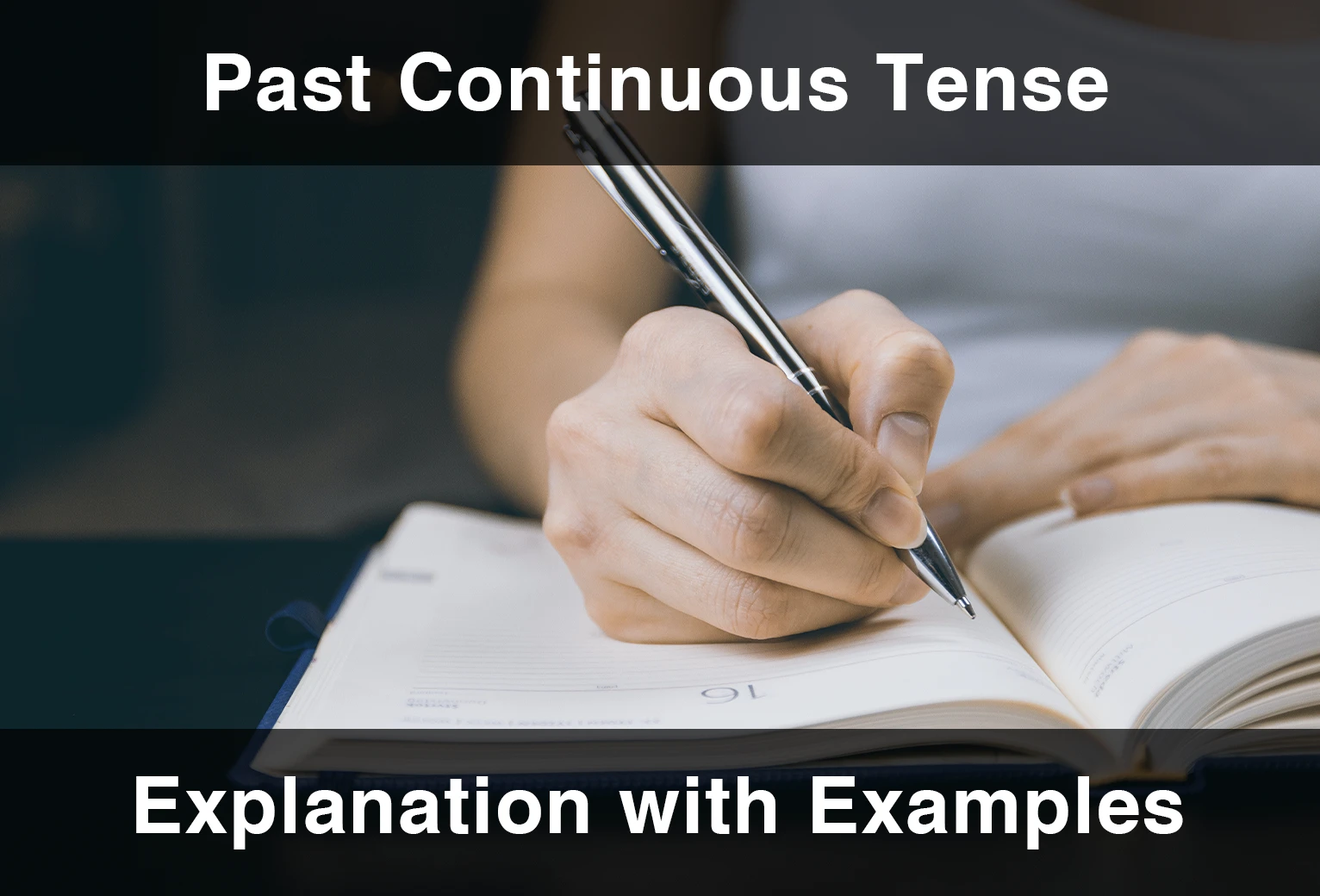Present Perfect Tense is a flexible verb tense that can be utilized in a wide variety of circumstances. You will improve your English grammar and achieve a higher level of confidence as a speaker by learning how to construct and use the Present Perfect Tense. Let’s get into the depths of the Present Perfect Tense in English together and examine it with examples.
What is Present Perfect Tense?
There are multiple verb tense forms in English that can be used to indicate various times and occurrences. The Present Perfect Tense is one of the most essential verb tenses to master when learning English. When discussing past occurrences that are relevant to the present, the Present Perfect Tense is used. It may also be utilized to discuss events that have occurred repeatedly throughout time or to discuss actions that have been performed over a set amount of time.
What are the Present Perfect Tense Grammar Rules?
The Present Perfect Tense is formed by following a set of grammar rules to help describe actions or events that have occurred in the past but have a connection to the present. Below are some important rules to watch out for when using the Present Perfect Tense:
Formulation: The Present Perfect Tense is formed by using the auxiliary verb “have” (for the first and second person pronouns) or “has” (for the third person singular pronouns) followed by the past participle form of the main verb.
Subject-Verb Agreement: When using the Present Perfect Tense, be sure that the auxiliary verb “have” or “has” agrees with the subject in terms of person and number.
Negative Form: To create the negative form of the Present Perfect Tense, simply add the word “not” after the auxiliary verb. For example, “I have not seen that movie.”
Interrogative Form: To form questions in the Present Perfect Tense, invert the subject and the auxiliary verb. For example, “Have you finished your homework?”
Time Expressions: The Present Perfect Tense is often used with time expressions like “already,” “yet,” “just,” “never,” “for,” and “since” to provide additional information about the time or duration of the action or event.
Present Perfect Tense Grammar Rules Table
To help you better understand the grammar rules of the Present Perfect Tense, here’s a table summarizing the structure:
| Subjects | Affirmative | Negative | Question |
|---|---|---|---|
| I, You, We, They | have + past participle | have not (haven't) + past participle | Have + subject + past participle |
| He, She, It | has + past participle | has not (hasn't) + past participle | Has + subject + past participle |
Structuring Sentences with Present Perfect Tense
To form Present Perfect Tense, you use the following formula:
Subject + have/has + past participle
For singular subjects, you use the auxiliary verb “has.” For plural subjects, you use the auxiliary verb “have.” The past participle of a verb is formed by adding -ed to the infinitive form of the verb.
The Present Perfect Tense is formed by using the auxiliary verbs “have” or “has” and the past participle of the verb. For example, the past participle of the verb “to eat” is “eaten,” so the Present Perfect Tense of “to eat” would be “I have eaten,” “you have eaten,” “he/she/it has eaten,” “we have eaten,” “you have eaten,” and “they have eaten.”
Present Perfect Tense Positive Sentences
To form the positive form of Present Perfect Tense, you simply follow the “subject + auxiliary verb + past participle” formula.
Positive Sentences
| Subject | Auxiliary verb | Main verb | Object |
|---|---|---|---|
| I | Have/has | Third form of verb | An object |
| You | Have/has | Third form of verb | An object |
| We | Have/has | Third form of verb | An object |
| They | Have/has | Third form of verb | An object |
| He | Have/has | Third form of verb | An object |
| She | Have/has | Third form of verb | An object |
| It | Have/has | Third form of verb | An object |
For example:
He has lost his keys again.
We have been waiting for over an hour.
The dog has chewed up my shoes.
He has been practicing his public speaking skills for months.
We have been visiting our grandparents every summer for as long as I can remember.
They have been renting their house for two years.
She has been practicing her dance routine for weeks.
He has been studying for his exams for a month.
Present Perfect Tense Negative Sentences
To form the negative form of Present Perfect Tense, you simply add the word “not” after the auxiliary verb.
Negative Sentences
| Subject | Auxiliary verb | Negative adverb | Main verb | Object |
|---|---|---|---|---|
| I | Have/has | Not | Third form of verb | An object |
| You | Have/has | Not | Third form of verb | An object |
| We | Have/has | Not | Third form of verb | An object |
| They | Have/has | Not | Third form of verb | An object |
| He | Have/has | Not | Third form of verb | An object |
| She | Have/has | Not | Third form of verb | An object |
| It | Have/has | Not | Third form of verb | An object |
For example:
She has not been to France.
We have not watched a movie.
He has not studied for his exam yet.
They have not been to the beach this summer.
She has not learned how to drive a car.
We have not seen that movie before.
He has not finished his homework yet.
They have not been able to find their lost keys.
She has not written her essay yet.
We have not had any problems with the new computer system.
Present Perfect Tense Interrogative Sentences
To form the interrogative form of Present Perfect Tense, you simply invert the subject and the auxiliary verb.
Interrogative Sentences
| Auxiliary verb | Subject | Main verb | Object |
|---|---|---|---|
| Have/has | I | Third form of verb | An object |
| Have/has | You | Third form of verb | An object |
| Have/has | We | Third form of verb | An object |
| Have/has | They | Third form of verb | An object |
| Have/has | He | Third form of verb | An object |
| Have/has | She | Third form of verb | An object |
| Have/has | It | Third form of verb | An object |
For example:
Has it rained?
Have they gone to the store?
Have you finished your assignment?
Has he eaten lunch yet?
Have they visited the new art exhibit downtown?
Has she completed her project?
Have we made reservations for dinner tonight?
Has he applied for the job yet?
Have they been to the top of the mountain?
Short answers:
Positive Answers
| Confirmation word | Subject | Auxiliary Verb |
|---|---|---|
| Yes, | I | Have/has |
| Yes, | You | Have/has |
| Yes, | We | Have/has |
| Yes, | They | Have/has |
| Yes, | He | Have/has |
| Yes, | She | Have/has |
| Yes, | It | Have/has |
Negative answers:
| Denial word | Subject | Auxiliary Verb | Negative adverb |
|---|---|---|---|
| No, | I | Have/has | Not |
| No, | You | Have/has | Not |
| No, | We | Have/has | Not |
| No, | They | Have/has | Not |
| No, | He | Have/has | Not |
| No, | She | Have/has | Not |
| No, | It | Have/has | Not |
Wh- questions in Present Perfect Tense
When forming a Wh- question in the present perfect tense we,
Start with the wh- word (what, where, when, why, how, etc.).
Add have/has after the wh- word.
Add the subject after have/has.
Add the third form of the verb after the subject.
Add the object at the end of the sentence.
To form a Wh- question sentence in the present perfect tense, we need to follow this simple formula: Wh- question + have/has + subject (He, She, It, I, You, We, They) + third form of the verb + object.
For example: What (Wh- question) + have (Auxiliary verb) + you (Subject) + done (Third form of the verb) to him (Object) + ?
| Wh- question | Auxiliary Verb | Subject | Verb | Object |
|---|---|---|---|---|
| Who | Have/has | I | Third form of verb | An object |
| Whose | Have/has | You | Third form of verb | An object |
| Which | Have/has | We | Third form of verb | An object |
| Where | Have/has | They | Third form of verb | An object |
| What | Have/has | He | Third form of verb | An object |
| Why | Have/has | She | Third form of verb | An object |
| When | Have/has | It | Third form of verb | An object |
| How | Have/has | Third form of verb | An object |
Here are some examples of Wh- question sentences in the present perfect tense:
What have you been doing?
How long have you been studying English?
Why has he been absent from work?
Where have they gone on vacation?
How many times have you visited Paris?
What has she eaten for breakfast?
When to Use Present Perfect Tense?
Present Perfect Tense can be used in the following situations:
To talk about things that have happened in the past but have a connection to the present. For example:
I have eaten already.
She has been to France.
He has studied Japanese for three years.
We have seen that movie three times.
They have known each other since childhood.
I have never been to Asia.
She has worked at the company for five years.
To talk about things that have happened repeatedly over time. For example:
I have been working out every day.
We have been going to the movies every weekend.
She has been practicing the piano for two hours every day.
They have been playing tennis every Saturday afternoon.
He has been taking Spanish classes for six months.
We have been meeting for lunch every other week.
She has been volunteering at the animal shelter twice a week.
They have been running a marathon every year since 2010.
To talk about things that have been done for a certain amount of time. For example:
I have lived in this city for five years.
She has had her car for two years.
He has been working at the same company for a decade.
They have been married for five years.
She has been taking guitar lessons for three months.
He has been living in his apartment for a year.
We have been saving money for our trip for six months.
To offer or ask for information. For example:
Have you seen my keys?
Have you heard the news?
Have you read this book yet?
Have you tasted this dish before?
Have you met my sister?
Have you tried this new coffee shop?
Have you seen this movie?
Have you heard this song?
Have you visited this museum?
Have you been to this restaurant?
To make generalizations. For example:
I have never been to Europe.
She has always been a good student.
He has never been interested in sports.
She has always loved to travel.
They have never lived in a big city.
He has always been a morning person.
She has never been a fan of spicy food.
They have always been environmentally conscious.
He has never been a fan of horror movies.
She has always been a dog lover.
To express surprise or disbelief. For example:
You have never been to Paris?
She has already graduated?
You have never tried sushi before?
She has already finished the project?
They have never heard of that band?
He has already read that entire book series?
She has never been to the beach before?
They have already seen the Northern Lights?
He has never tasted chocolate before?
She has already run a marathon?
The Adverbs of Time That Are Used in Present Perfect Tense:
Adverbs of time state the period of time that the action of the sentence occurs.The present perfect tense is often used with indefinite time adverbs that refer to a time period between the past and now. The adverbs of time that are often used are:
Just,
Never,
Ever,
Since,
For,
Before,
Yet,
Already,
Recently,
Lately.
Here are some example sentences that are formed with adverbs of time:
I have just finished my homework.
I have never been to Paris.
Have you ever been to New York?
I have been studying English since 2010.
I have been studying English for 10 years.
Have you ever visited London before?
Have you finished your homework yet?
I have already eaten breakfast.
I have recently started a new job.
I haven’t seen her lately.
Frequently Asked Questions About Present Perfect Tense:
What is the Present Perfect Tense?
The Present Perfect Tense is a verb tense that is used for describing past actions or occurrences that have some sort of consequence in the present.
When should I use the Present Perfect Tense?
The Present Perfect Tense is used in a variety of scenarios, such as when discussing actions that have been carried out for a certain amount of time, describing actions that have occurred repeatedly over time, and discussing past events that are relevant to the present.
How do I form the Present Perfect Tense?
The past participle version of the main verb is combined with the auxiliary verb “have” or “has” for forming the Present Perfect Tense.
Can the Present Perfect Tense be used to express surprise or disbelief?
Yes, you can show surprise or disbelief by employing the Present Perfect Tense, like in the statement “Have you really never been to New York City before?”
Would you like to put what you have learned into practice? You can access everything you need to learn English on a single platform! With 25-minute one-on-one live English lessons, 40-minute group lessons, more than 30,000 interactive videos, vocabulary learning tools, AI-supported tutor MiMi, quizzes, and interactive activities, EnglishCentral offers its users a personalized and quality education plan at an affordable price. How about registering for EnglishCentral now and starting to learn English?











